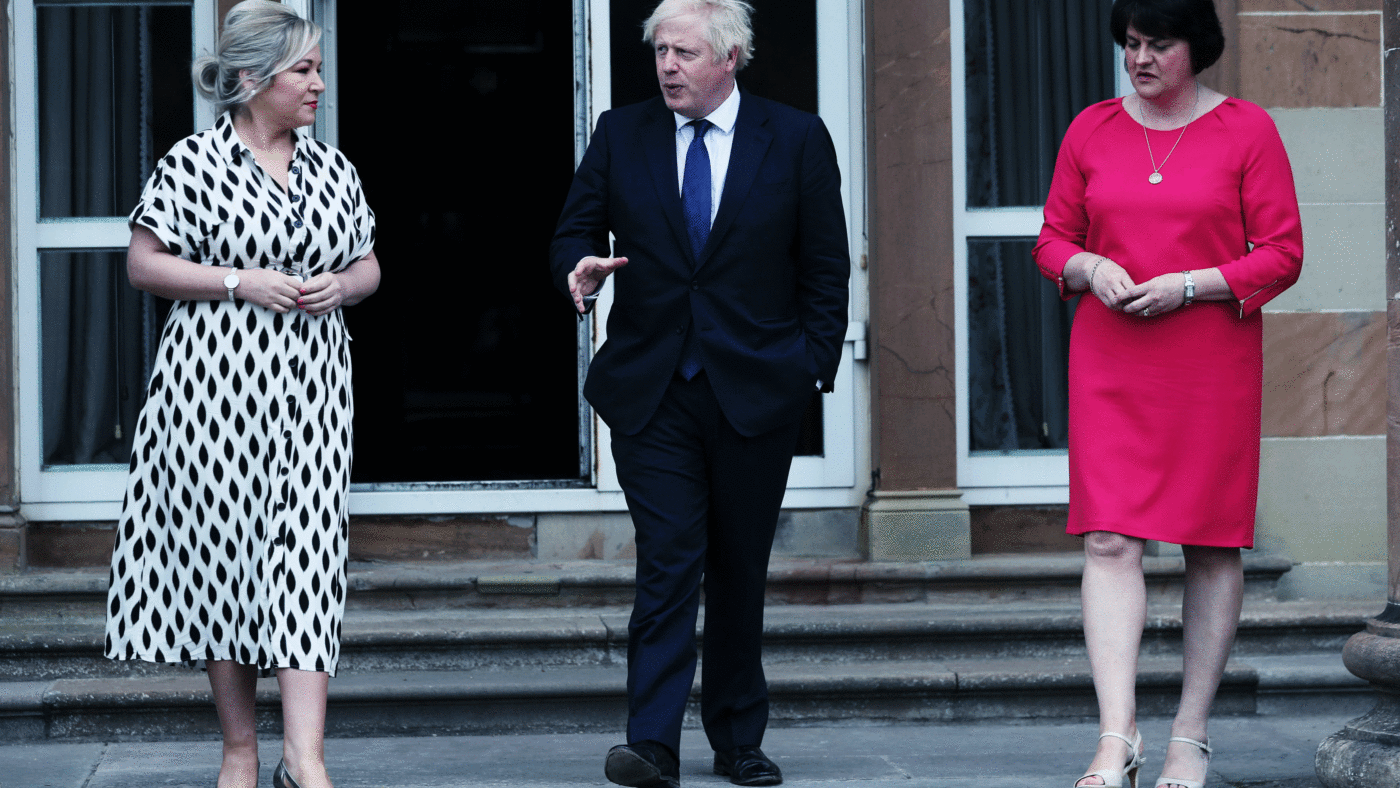Last week, I wrote about what Lord Frost might be trying to do when he unilaterally extended the ‘grace periods’ on trade from Great Britain to Northern Ireland.
In short, I argued that he represents a school of thought in Government which holds that the Protocol as it stands is unsustainable. As a ‘living document’ whose scope will continue to expand alongside EU law, it will lay more and more fetters on Irish Sea trade and feel to unionists like an unceasing attack on the Province’s position in the United Kingdom.
Therefore, the intention is to try and deliver a substantial renegotiation of the whole thing before Frost’s six months of breathing space have elapsed.
But other interpretations are available. Sam McBride, the political editor of the pro-UK newspaper News Letter, puts it thus:
“While interpreted by the EU as a provocative move to tear up their agreement, there is every reason to believe that this is Mr Johnson attempting – perhaps even desperately – to salvage the protocol from an EU which increasingly appears unaware of how it is undermining the deal.”
To his mind, renegotiating the Protocol would entail the Prime Minister admitting that his critics were right and his promises to Ulster worthless, not to mention inviting retaliation from Brussels that might jeopardise the economic recovery on the mainland.
Of course, if you squint you can see a lot of similarities between these two stances. After all, how could Boris Johnson “salvage the protocol” in McBride’s version without securing at least a change in behaviour from the EU to stop it “undermining the deal”? The difference between that and ‘renegotiation’ could as likely be one of interpretation and emphasis as substance.
Whatever the truth, it is extremely important that the Government does have a plan. Whilst all eyes are currently on Scotland, the formal withdrawal of support for the Belfast Agreement by several armed loyalist groups could presage a serious deterioration of the situation in Northern Ireland.
Organised political Unionism has likewise united around (peaceful, lawful) opposition to the Protocol. It isn’t surprising that people like McBride are cynical about the Government’s intentions. London’s handling of the Northern Irish dimension of Brexit has been woeful from the beginning, when Theresa May allowed herself to be gulled into signing up to a maximalist interpretation of British obligations to maintain an invisible border with the Republic, leaving an internal border or the softest of Brexits the only remaining options.
Johnson made much of his opposition to the introduction of an Irish Sea border, and continued to make solemn promises to the Democratic Unionists after becoming Prime Minister – only to junk them in order to secure a withdrawal agreement.
His defenders insist that this last only happened because of the passage of the ‘Benn Act’, which saw a Remainer shadow executive seize control of the Commons order paper to pass legislation prohibiting a no-deal exit. But you can see why Northern Irish commentators are sceptical about “the Brexiteers’ consistently dubious claim to have a clever plan”.
But the real problem is not that there isn’t a plan, but that ‘the Brexiteers’ are not a coherent faction inside the Government, and the Prime Minister lacks the character to keep key aides in post whilst delivering difficult long-term agendas.
We saw this most recently with Oliver Lewis, who was appointed to lead the Union Unit, only to be forced out after two weeks (and the Unit itself dissolved) as a result of infighting between different factions in Johnson’s ill-managed court. His strategy for taking on the SNP, which Johnson approved of, went with him.
What if that the Prime Minister had been elected in 1979? It is all but impossible to imagine him pressing ahead with Geoffrey Howe’s monetarist policies in the face of the kind of backlash Margaret Thatcher faced. Instead Keith Joseph would have been out, and his ‘clever plan’ too.
The way the Government handles Northern Ireland needs serious reform, not least taking the time to develop a proper UK understanding of our Belfast Agreement obligations and a root-and-branch shake-up of the Northern Irish Office to try and change its strongly neutralist internal attitudes.
Such a programme will entail a closer interest in Ulster than Johnson is likely to exhibit, unless it can be tied in to his proposed tunnel (which is now going to be ‘formally assessed’). But the very least he can do now is give Frost and the rest of his Northern Ireland team sufficient time and power to try and implement whatever the plan is. The stakes are too high for any more disinterest and drift.
Click here to subscribe to our daily briefing – the best pieces from CapX and across the web.
CapX depends on the generosity of its readers. If you value what we do, please consider making a donation.


